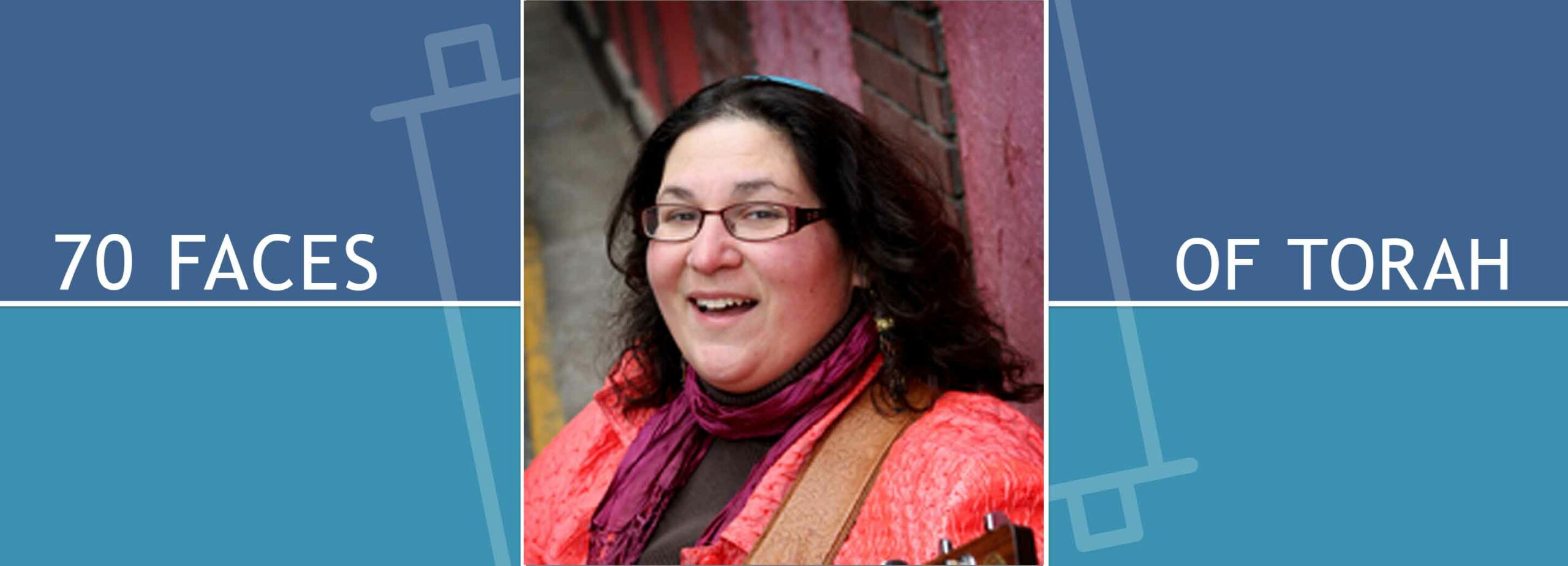Deuteronomy Take These Words: Deuteronomy and Carrying Torah With Us on Our Journey

Parashat Devarim (Deuteronomy 1:1-3:22)
“Kyewwwwww!” my nearly two-and-a-half year old daughter shrieks as she grabs hold of the object of her desire and lifts it high above her head. It is purple and spongy and covered in red polka dots and it is, in fact, a capital letter Q. To say that “Q” is her favorite letter would not be quite accurate. “Q” is actually, as far as I can tell, the only letter she knows. It’s not only this spongy bath-toy “Q” that she loves; she loves the green fridge magnet “Q” as well, and she also loves to point out other places that “Q” appears. What “Q” means to her, I cannot begin to guess, but her attachment to it is clear. She often carries a “Q” around the house with her or even takes it to bed.
This week we begin reading the Book of Deuteronomy, called in Hebrew “Devarim” for its opening verse which begins “These are the words that Moses spoke to all the people Israel….” This is Moses’ farewell speech to the people he has lead through the desert for forty years. Over the course of the Book of Deuteronomy, Moses retells the people’s story — sometimes at quite a variance to the version we have read in the previous books of the Hebrew Bible. Moses has this one last chance to instill in the people all that he hopes will sustain them as they cross into the Promised Land without him. He knows he cannot accompany them; he hopes his words will.
There is something so wonderfully simple about our daughter’s attachment to her “Q.” It makes me excited to see what “Q” will become for her as her language grows and she learns other letters and combines them. Right now, she doesn’t even know that “Q” is the first letter in the “Quiet, shhh!” she loves to tell the neighbors’ barking dog. But someday, I pray, it will also allow her to wonder about questions, and quarrels, and queerness, and quality versus quantity, and when it’s time to quit.
In the way she cherishes her “Q,” I see something of Moses’ hope for what would happen to the words he spoke to the people in his farewell speech. He gave them words that were immediately relevant to them. But he also, or so I read it, gave them, gave us, words whose meaning would only truly become clear years or even generations later: words that might mean different things to different people in different times.
“These are the words” reads the text, not “these are the legends” or “these are the concepts.” Words can be worked with: broken down into their letters, cut and pasted, set to song. Later in Devarim (Deut. 30:11-14), Moses tells the people that Torah is not way up in heaven and not far across the sea, “Rather, the word is very close to you, in your mouth, and in your heart, that you may do it.”
We can read these words as being about obedience to Divine commandment. Many of us do, and many of us are made deeply uncomfortable by this reading. But we also have the option of reading it as being about seeking guidance for the journeys of each of our lives.
This summer, our little family is also wandering from place to place, preparing to enter our own tiny little piece of “Promised Land” in the form of an apartment perched above the streets of Jerusalem. So far, both bath-toy “Q” and fridge-magnet “Q” have managed to make the journey with us. I am increasingly mindful of the words that I need to carry with me in this transitional time: words of encouragement, songs of solace and strength. And I am also drawn forward on this journey by the dreams of the words and their meanings that will flower in our new home. I dream of deepening conversations with the friends and family and students we will be able to welcome into our new space and rejoice preemptively in the Shabbat songs that will waft from our mirpeset (balcony) to the streets below.
What are the words that you carry because you know that, when your soul really needs it, they have the power to carry you?
Minna Bromberg is a singer, songwriter, rabbi, and voice teacher who lives in Jerusalem. Ordained in 2010 at the Rabbinical School of Hebrew College, she currently runs the School’s Year-in-Israel Program for rabbinical students.
Interested in a possible career in the rabbinate? Read Rabbi Dan Judson’s article “Jewish Lessons on Meaningful Work.“ Rabbi Judson is Dean of the Rabbinical School of Hebrew College. He has a PhD in Jewish history from Brandeis University.

